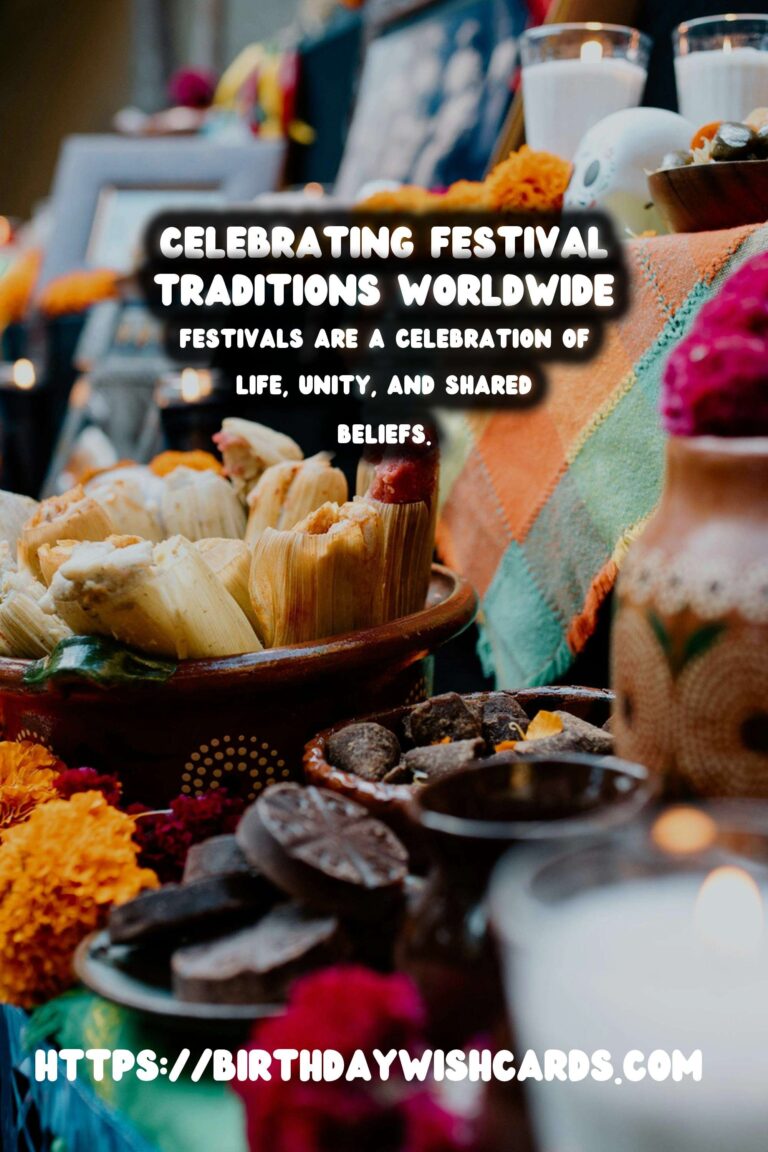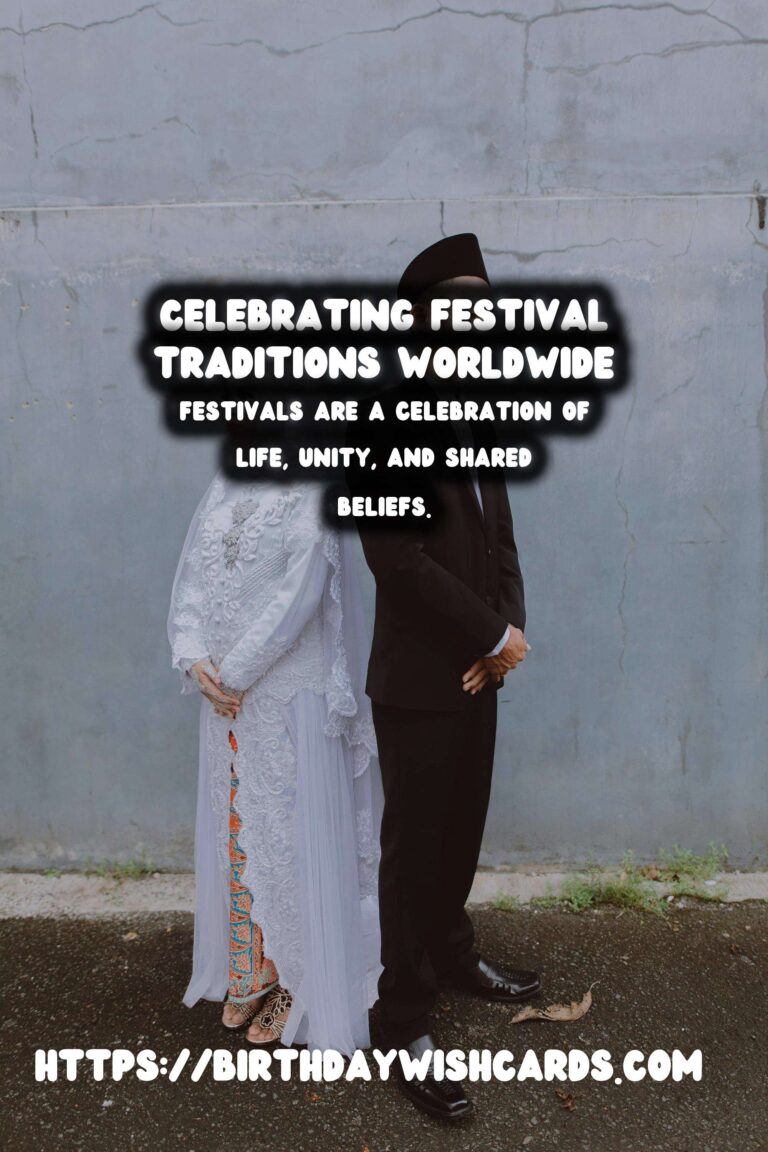
Every culture on this planet has its own distinct traditions, and when it comes to festivals, these traditions take center stage. Festivals are a celebration of life, unity, and shared beliefs, and they hold a mirror to the rich tapestry of human diversity. In this article, we will explore the significance of festivals from various corners of the world, understanding how they reflect cultural values and foster a sense of community.
Understanding Festival Traditions
Festival traditions are more than just events; they are a culmination of history, spirituality, and culture. Each festival tells a story about the people who celebrate it, connecting past generations with the present. Through elaborate rituals, vibrant colors, and joyous celebrations, festivals serve as a powerful reminder of cultural heritage.
The Role of Festivals in Society
Festivals play a multifaceted role in society. They serve as a means of education, teaching the younger generation about their roots and the values of their culture. Moreover, festivals encourage social cohesion by bringing together individuals from diverse backgrounds, promoting understanding and respect among different communities.
Notable Festivals and Their Traditions
Let’s take a look at some remarkable festivals around the world, each showcasing unique traditions that shine brightly amid the global landscape.
Diwali – The Festival of Lights (India)
Diwali, known as the Festival of Lights, is one of the most widely celebrated festivals in India. It symbolizes the victory of light over darkness and good over evil. Homes are adorned with oil lamps (diyas) and colorful rangolis, illuminating the night sky.
The festival includes rituals such as Lakshmi Puja, where devotees worship the goddess of wealth. Families come together to share sweets and exchange gifts, reinforcing bonds and community spirit.
Oktoberfest – A Celebration of Bavarian Culture (Germany)
Oktoberfest is the world’s largest beer festival, held annually in Munich, Germany. It attracts millions of visitors who come to enjoy traditional German beer, food, and music. The festival is a vibrant expression of Bavarian culture, with parades, folk dances, and traditional costumes.
Although rooted in a historical wedding celebration, Oktoberfest has evolved into a global phenomenon that offers a joyful space for cultural exchange.
Carnival – The Spirit of Brazil
The Brazilian Carnival is nothing short of a spectacular showcase of vibrant parades, samba music, and dazzling costumes. It’s a cultural extravaganza that takes place before Lent, symbolizing a time of joyous abandon.
The festival promotes inclusivity, with participants from all walks of life coming together to celebrate. It also plays a crucial role in preserving Brazilian culture and history.
Holi – The Festival of Colors (India)
Holi is often referred to as the Festival of Colors, marking the arrival of spring. It is a joyous occasion where people throw colored powders at each other, dance, and celebrate together, regardless of social and economic barriers.
This festival signifies love, friendship, and the triumph of good over evil, highlighting the importance of community and togetherness.
Chinese New Year – A Time for Reunion
Chinese New Year is one of the most significant festivals in China, celebrated with family reunions, feasting, and various cultural traditions. The festival kicks off with dragon and lion dances that are believed to ward off evil spirits.
Families prepare traditional dishes, symbolizing prosperity and good fortune, and exchange red envelopes filled with money for luck. The customs of Chinese New Year showcase deep-rooted beliefs and the importance of family in Chinese culture.
Impact of Globalization on Festival Traditions
With the advent of globalization, festival traditions are evolving. While some cultures become more homogenized, others are finding ways to adapt their traditional celebrations to fit a modern context. This blending of traditions can enrich cultures, allowing for a greater sharing of values and practices worldwide.
Why We Should Celebrate Festivals
Celebrating festivals is crucial for maintaining cultural identity. They offer an opportunity for individuals to step away from daily routines and reconnect with their heritage. Additionally, festivals promote joy and positivity, creating shared memories that can last a lifetime.
As we partake in these vibrant celebrations, we not only honor our own traditions but also learn to appreciate and respect the customs of others, fostering a global community.
Conclusion
Festival traditions around the world shine a light on the richness of human expression. They remind us of the values we hold dear, the history that has shaped us, and the communities that support us. As we celebrate, let us embrace the diversity and beauty of these cultures, ensuring that the spirit of festivals continues to illuminate our lives for generations to come.
Festivals are a celebration of life, unity, and shared beliefs. They hold a mirror to the rich tapestry of human diversity.

